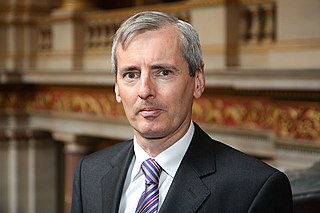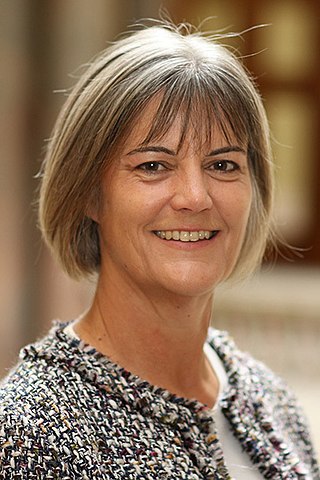Related Research Articles

A diplomatic mission or foreign mission is a group of people from a state or organization present in another state to represent the sending state or organization officially in the receiving or host state. In practice, the phrase usually denotes an embassy or high commission, which is the main office of a country's diplomatic representatives to another country; it is usually, but not necessarily, based in the receiving state's capital city. Consulates, on the other hand, are smaller diplomatic missions that are normally located in major cities of the receiving state. As well as being a diplomatic mission to the country in which it is situated, an embassy may also be a nonresident permanent mission to one or more other countries.
Tanzania's first president, Julius Nyerere also was one of the founding members of the Non-Aligned Movement, and, during the Cold War era, Tanzania played an important role in regional and international organisations, such as the Non-Aligned Movement, the front-line states, the G-77, and the Organisation of African Unity (OAU). One of Africa's best-known elder statesmen, Nyerere was personally active in many of these organisations, and served chairman of the OAU (1984–85) and chairman of six front-line states concerned with eliminating apartheid in Southern Africa. Nyerere was also involved with peace negotiations in Burundi until his death. Nyerere's death, on 14 October 1999, is still commemorated annually.

Uganda has formal diplomatic relations with many countries, some accredited. Since the colonial era and after independence Uganda has grown to be one of the most important African countries. Uganda has diplomatic relations with many countries throughout Africa, the Americas, Asia, Europe and Oceania. Uganda is a member of the United Nations and the Commonwealth of Nations since 1962.

The Hallstein Doctrine, named after Walter Hallstein, was a key principle in the foreign policy of the Federal Republic of Germany from 1955 to 1970. As usually presented, it prescribed that the Federal Republic would not establish or maintain diplomatic relations with any state that recognized the German Democratic Republic. In fact it was more nuanced. There was no public official text of the "doctrine", but its main architect, Wilhelm Grewe, explained it publicly in a radio interview. Konrad Adenauer, who served as Chancellor of Germany from 1949 to 1963, explained the outlines of the policy in a statement to the German parliament on 22 September 1955. It meant that the Federal German government would regard it as an unfriendly act if third countries were to recognize the "German Democratic Republic" or to maintain diplomatic relations with it – with the exception of the Soviet Union. The West German response to such could mean breaking off diplomatic relations, though this was not stated as an automatic response under the policy and in fact remained the ultima ratio.

The Gambia followed a formal policy of non-alignment throughout most of former President Dawda Jawara's tenure. It maintained close relations with the United Kingdom, Senegal, and other African countries. The July 1994 coup strained The Gambia's relationship with Western powers, particularly the United States. Starting in 1995, President Yahya Jammeh established diplomatic relations with several additional countries, including Libya, the Republic of China, and Cuba. As scholars on Gambia's foreign policy have argued, throughout Jammeh's period, the country's foreign policy was a shifting sand, with little of direction.
Diplomatic rank is a system of professional and social rank used in the world of diplomacy and international relations. A diplomat's rank determines many ceremonial details, such as the order of precedence at official processions, table seatings at state dinners, the person to whom diplomatic credentials should be presented, and the title by which the diplomat should be addressed.

Sir William Edward Goschen, 1st Baronet,, was a British diplomat.

Sir Laurence Stanley Charles Bristow is a British diplomat who served as British Ambassador to Afghanistan between June and November 2021, notably during the fall of Kabul. He served as British Ambassador to Azerbaijan from 2004 to 2007 and British Ambassador to Russia from 2016 to 2020. He is now President of Hughes Hall, Cambridge.

A consulate is the office of a consul. A type of diplomatic mission, it is usually subordinate to the state's main representation in the capital of that foreign country, usually an embassy. The term "consulate" may refer not only to the office of a consul, but also to the building occupied by the consul and the consul's staff. The consulate may share premises with the embassy itself.

The Bahamas has a strong bilateral relationship with the United Kingdom, represented by a High Commissioner in London. The Bahamas also associates closely with other nations of the Caribbean Community (CARICOM).

Sir John Oliver Wright was a British diplomat. He was British Ambassador to West Germany from 1975 to 1981 and British Ambassador to the United States from 1982 to 1986.

The Ministry of Foreign Affairs of the Republic of Belarus is the Belarusian government ministry which oversees the foreign relations of Belarus.
A de facto embassy is an office or organisation that serves de facto as an embassy in the absence of normal or official diplomatic relations among countries, usually to represent nations which lack full diplomatic recognition, regions or dependencies of countries, or territories over which sovereignty is disputed. In some cases, diplomatic immunity and extraterritoriality may be granted.

Diplomatic uniforms are ornate uniforms worn by diplomats from some countries at public occasions. Introduced by European states around 1800 and patterned on court dress, they were abandoned by most countries in the twentieth century, but diplomats from some countries retain them for rare, formal occasions.

The British Embassy Pyongyang is the British sovereign's diplomatic mission in Pyongyang, North Korea, that represents the United Kingdom's interests. It is located in the Munsu-dong diplomatic compound, where most of the diplomatic missions to North Korea are located, with the exception of the Russian and Chinese missions.

Michael John Gifford is a British diplomat who has been the United Kingdom's Ambassador to Kazakhstan since January 2018.

Hamzat Ahmadu was a Nigerian diplomat and civil servant. He served as Ambassador to the Soviet Union (1975–1978), East Germany (1975–1978), the Netherlands (1978–1981), Cameroon (1982–1984), and the United States (1987–1991) at various times during his diplomatic career. He also served as the High Commissioner to the Bahamas from 1987 to 1990.

Julia Longbottom is a British diplomat and the current Ambassador of the United Kingdom to Japan since March 2021. She is the first woman ambassador to represent the United Kingdom in Tokyo.
References
- ↑ Archives, The National (August 28, 2019). "The National Archives - Foreign and Commonwealth Office files from 1990: 'United Germany'". The National Archives blog.
- ↑ Office, Great Britain Foreign (April 17, 1964). "The Foreign Office List and Diplomatic and Consular Year Book for ..." Harrison and Sons – via Google Books.
- ↑ Quinn, Ben (August 28, 2019). "Thatcher archives: diplomats warned of 'damaging' stance on Germany". The Guardian.
- ↑ Archives, The National (August 28, 2019). "The National Archives - Foreign and Commonwealth Office files from 1990: 'United Germany'". The National Archives blog.
- ↑ Mackie, Colin. "A DIRECTORY OF BRITISH DIPLOMATS" (PDF). Archived from the original (PDF) on 2019-05-20.
- ↑ "The Foreign Office List and Diplomatic and Consular Year Book for". 1964.
- ↑ In: lexikon.dornbirn.at (Dornbirner Familienbuch). Stadtarchiv Dornbirn